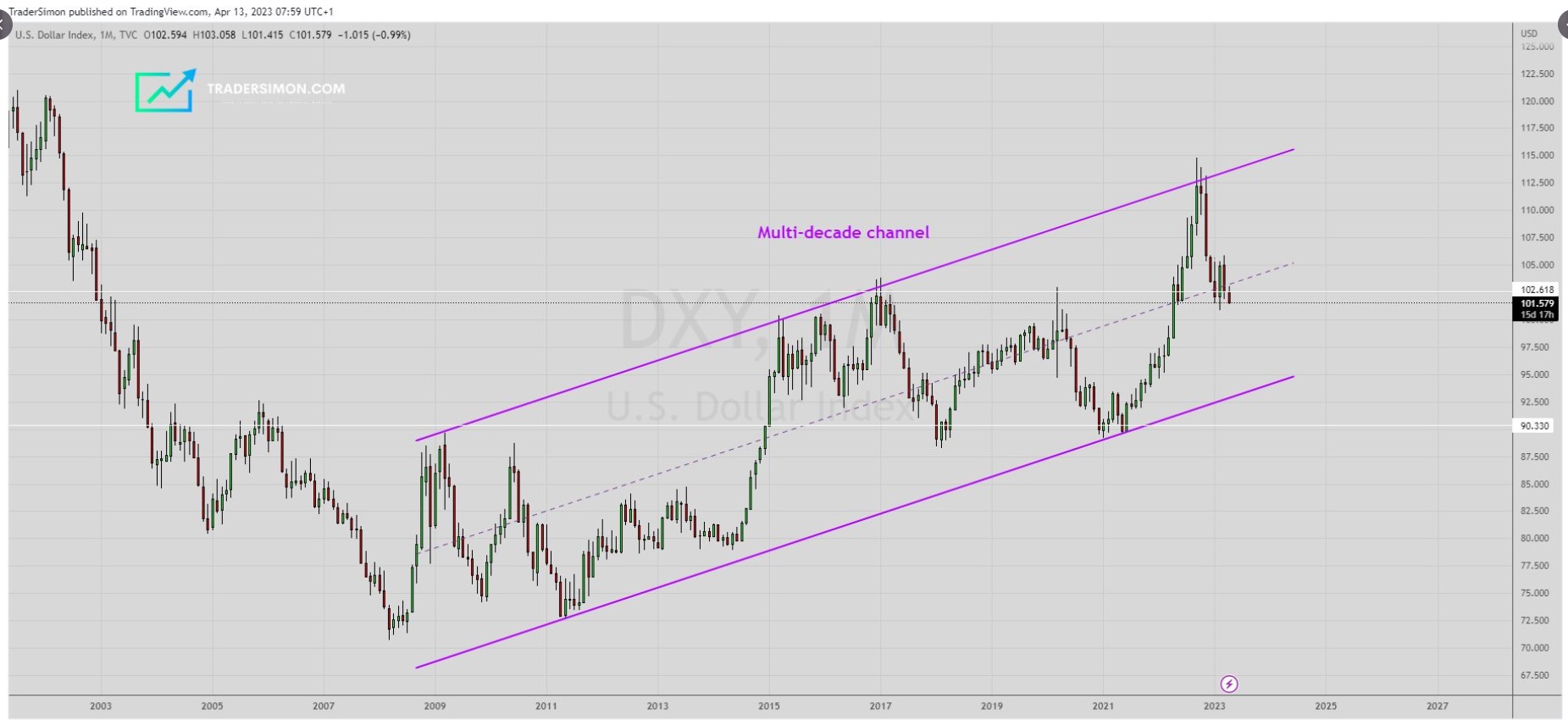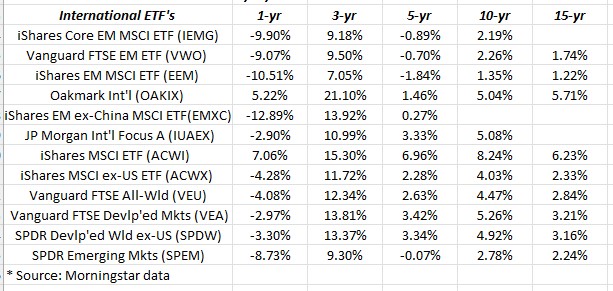International / Non-US investing has been so out-of-favor for so long, a recent conversation with a long-time friend who has his portfolio allocated based on a traditional bank asset allocation model replied to a comment about international investment opportunities, “It’s gone nowhere for years.”
And therein lies the opportunity.
The recent flurry of social media posts, articles, and blog updates on “dollar hegemony” and the potential loss of the dollar as the world’s reserve currency seem far-fetched at best and alarmist at worst. The rise of the recent articles and attention is a result of China inking deals with countries like Brazil to trade in either the Chinese yuan or the Brazilian real directly, thereby bypassing conversion to the dollar. There was a number of these arrangements that hit the wires several weeks ago, which were then followed by the spate of articles on the buck.
First, in terms of the reserve currency, the world’s share of the US dollar reserves is still between 50% – 60%, not because of any inherent problem with the dollar but because the euro was launched in 1999. Per the blog from the IMF, after the euro was launched, the dollar’s percentage share of the world’s reserves fell from 71% to 59% in the last 25 years. Much of that could be simply the supply of euros versus the supply of dollars.
Second, the amount of sovereign debt denominated in US dollars (liabilities of non-US central banks) is over $15 trillion as of 2021.
Every Treasury Secretary since Bob Rubin (President Clinton) has reiterated the “the Treasury prefers a stronger dollar” mantra. Still, the fact is America’s probably better served, at least in terms of the enormous trade deficit, from a gradually weakening dollar.
In the last 25 years, there have been two periods where the US dollar (as measured by the DXY) has been unusually strong:
- The period from 2000 to 2002, the first two years of Bush 43’s Administration, when the SP 500 was in the process of correcting 50%, and the Nasdaq was in the process of correcting 80% (along with a host of other issues like 9/11, and the Worldcom and Enron bankruptcies);
- 2022, or last year, when the dollar was very strong, peaking in late October ’22, after the SP 500 had bottomed, but supported by rising interest rates;
Here’s a longer-term weekly chart of the DXY:

The author of the chart is unknown, but you can see the unusual strength in the dollar in the early part of this century and its subsequent weakening and then the strength again in 2022.
Here’s what’s really interesting: comparing annual returns:

Using the iShares style ETFs across the large-to-small cap and value versus growth, I’d like readers to note the 10 and 15-year annualized returns.

Now after perusing the US market's small-to-large cap styles and value-to-growth returns, in this second spreadsheet, note the 5, 10, and 15-year annual returns for non-US ETFs, and mutual funds, across primarily iShares and Vanguard, as well as SPDR’s, with a couple of “40 Act” funds thrown in.
Look at the difference in those returns.
Conclusion
As a rule, clients are told that no individual non-US stocks will be selected for client accounts, but rather ETFs or mutual funds, simply to reduce that inherent “single-stock” risk which might have a different currency, etc. Perhaps it’s naive, but when dealing with non-US investments, it’s more of a “top-down” decision. I’d rather make wider bets with an ETF or mutual fund that knows how to navigate the liquidity and regulatory issues around buying and selling individual issues.
That being said, the allocation to Non-US and international today in client accounts is – generally – over 20% in each portfolio and approaching 30% of the weight in some accounts, and is likely to grow in the near future.
It’s really the difference in those longer-term returns between US and non-US that has my attention. Looking at the large-mid-and small-cap returns in the US – either value or growth – the last decade has been a great time to be a US investor, but no “style-box” factor reflects any kind of compelling value other than “average” returns. On the other hand, since 2006 – 2007, non-US and international have had short bouts of great returns, like in 2016 or 2017, but have been relatively uninteresting and offered just low-single-digit returns for long periods of time.
David Herro’s Oakmark International Oakmark International Fund Investor Class is the largest, single, international position today and represented a 6% weight across all client accounts (aggregated) as of 3/31/23. David’s fund and the 15-year 5% return is rivaled only by the ACWI’s 6.23% return for the same time period. David’s focus is concentrated on Europe, which he thinks is undervalued, given the travails around Brexit and then the Russian invasion of Ukraine. It was a contrarian bet by David, and it really paid off given the mild winter in Europe and the plummeting natural gas price.
Other positions include the iShares MSCI Emerging Markets ex China (NASDAQ:EMXC) (emerging markets ex-China), the Vanguard FTSE All-World ex-US Index Fund ETF Shares (NYSE:VEU) (Vanguard All-World Ex-US ETF) and the Vanguard FTSE Developed Markets Index Fund ETF Shares (NYSE:VEA) (Vanguard FTSE Developed Ex-US ETF).
Take all of this as one opinion, but I do think international and non-US can offer compelling returns given their relative underperformance to the US markets in the last 10 years. But the dollar has to cooperate.
Past performance is no guarantee of future results. Capital markets can and do change quickly, as does the state of the economy. This information is updated, but not always on a timely basis, and thus readers have to do their own homework.
